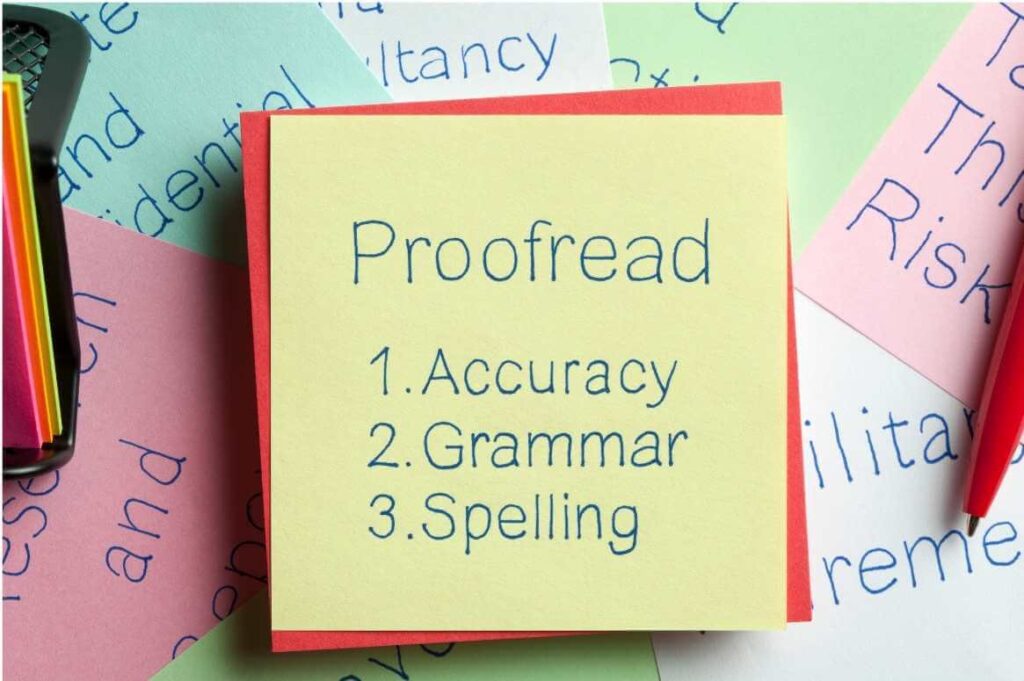Top Mistakes Non-Native English Speakers Make in Scientific Proofreading
Proofreading is an essential part of the research writing process, particularly when it comes to academic and scientific papers. For non-native English speakers, proofreading services can make all the difference in turning a good paper into a great one. Whether you're preparing to submit your paper for publication or simply want to ensure the quality of your work, proofreading ensures that your research is free of errors and presented professionally.
In this blog, we’ll explain why scientific proofreading is crucial, the common hurdles faced by non-native English speakers, and how you can avoid them. We'll also show you how we can help with research paper proofreading to ensure that your work is polished and publication-ready.

Why is Proofreading Important for Research Papers?
Proofreading is more than just correcting spelling mistakes. It’s about ensuring clarity, coherence, and consistency in your writing. Whether you're working on a scientific study or an academic assignment, proofreading services help ensure that your paper is professionally written and easy to understand.
Grammatical errors, inconsistent terminology, and awkward phrasing can make your research paper difficult to follow, ultimately affecting its quality. Proofreading for non-native speakers becomes even more important, as these errors can have a significant impact on your paper’s success.
Common Hurdles in Proofreading for Non-Native Speakers
Non-native English speakers often face unique challenges when proofreading their research papers. Here are some common hurdles:
1. Grammatical Errors
Even advanced English speakers can struggle with grammar. Non-native speakers may make mistakes with verb tenses, prepositions, or word order. These errors can make your research paper difficult to understand and reduce its quality.
2. Inconsistent Terminology
In academic writing, consistency is key. Non-native speakers may struggle with scientific terminology or maintaining consistent formatting throughout the paper. This inconsistency can confuse readers and hurt the professionalism of the paper.
3. Awkward Phrasing and Word Choice
While non-native speakers often have a good grasp of vocabulary, choosing the right words for academic writing can be tricky. Incorrect word choice or awkward phrasing can make your paper sound unnatural, detracting from its meaning.
4. Overuse of Passive Voice
While academic papers often rely on passive voice, overusing it can lead to unclear writing. It’s important to find a balance between active and passive voice for clarity and readability.
How to Overcome Proofreading Challenges
By addressing these challenges head-on, you can improve the quality of your research paper and ensure it’s ready for submission. Here’s how to avoid common proofreading pitfalls:
1. Take a Break Before Proofreading
When you finish your paper, step away from it for a few hours or a day. Coming back with fresh eyes helps you spot errors that you might have missed before.
2. Read Aloud
Reading your paper out loud helps you catch awkward phrasing and unnatural sentences. It's a useful way to identify mistakes and ensure your paper flows smoothly.
3. Use Grammar Tools
Grammar checkers like Grammarly or ProWritingAid are helpful but don’t rely solely on them. These tools may miss complex scientific terms or make incorrect suggestions. Double-check their recommendations before making changes.
4. Check for Consistency
Ensure consistent use of terms, units, and citation style throughout your paper. Inconsistencies can confuse your readers and reduce your paper’s credibility. Pay close attention to the formatting of references, footnotes, and bibliographies as well.
5. Simplify Sentence Structure
Non-native speakers often struggle with complex sentence structures. To improve clarity, break down long sentences into shorter ones. Avoid jargon and ensure each sentence has a clear subject and verb. Using active voice instead of passive voice will make your sentences more direct and engaging.
6. Ask for Feedback
If possible, have a native English speaker or colleague review your paper. They can provide valuable feedback and help you catch errors you may have missed.
Common Mistakes to Avoid in Scientific Proofreading
While proofreading, keep an eye out for these common issues:
- Verb Tense Errors: Be consistent with the tenses you use. Different sections of your paper may require different verb tenses, such as past, present, or future.
- Incorrect Prepositions: Prepositions can be tricky. Watch out for phrases that don’t sound quite right and ensure they are used correctly.
- Overuse of Passive Voice: While passive voice is common in scientific writing, using it excessively can make your sentences harder to read. Favor active voice when appropriate.
How We Can Help with Your Research Paper
At PaperEdit, we specialize in proofreading research papers, especially for non-native English speakers. Here’s how our services can help you overcome the challenges mentioned:
- Grammar and Syntax Correction: We fix grammatical errors and improve sentence structure.
- Consistency Checks: We ensure that terminology, citation style, and formatting remain consistent throughout the paper.
- Clarity and Readability: We rephrase awkward sentences to ensure that your paper flows smoothly and is easy to read.
- Balanced Voice Usage: We help balance active and passive voice, making your paper direct and easy to follow.
- Expert Proofreading for Students: Our experts provide tailored proofreading services to help students enhance their research papers.
With our Substantive Editing Package, you can receive comprehensive proofreading, journal selection assistance, and much more. We make sure your paper is polished and ready for publication.
Conclusion
Proofreading services are essential for anyone working on a research paper, especially for non-native English speakers who face additional challenges. By being aware of common proofreading mistakes and following simple tips, you can improve your paper’s clarity, accuracy, and professionalism.
If you need help with scientific proofreading or academic proofreading, PaperEdit is here to support you. For further assistance, feel free to contact us via email at editing@paperedit.com or through WhatsApp at +447458935352 You can also fill out the contact form for additional inquiries.

